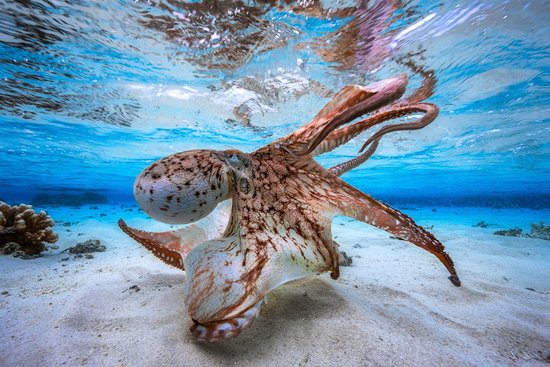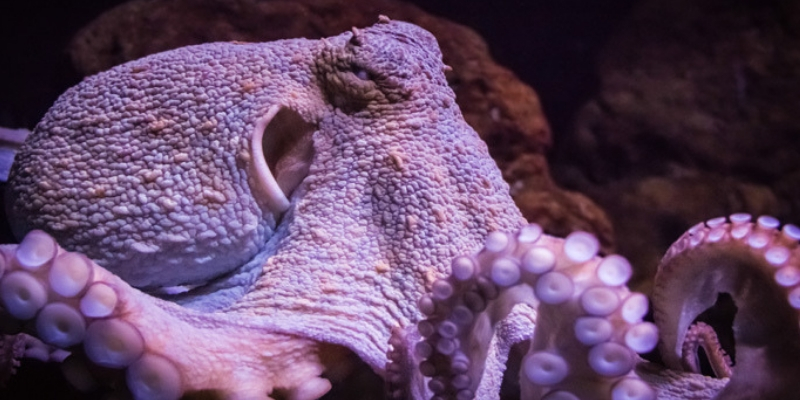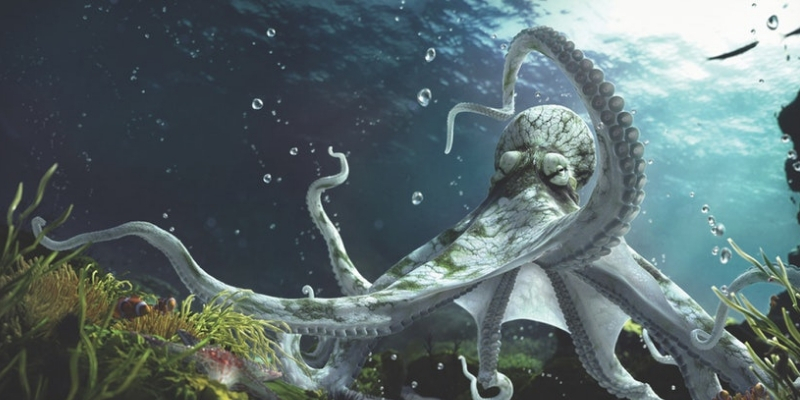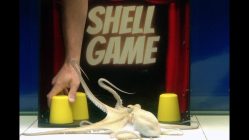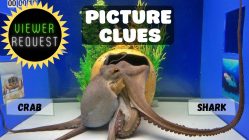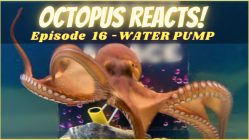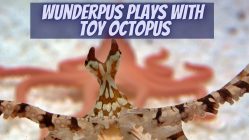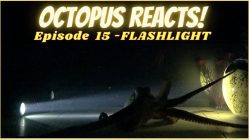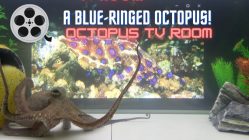Space — as a popular TV and movie franchise reminds us, it is “the final frontier.” Nobody knows for sure what is out there in terms of alien life. Are there lifeforms with intelligence and technology more advanced than our own? Is alien life confined to the microbial? Are we alone?
The fact that many people pose such questions means there are bound to be many theories about alien life. One of these involves the octopus. Yes, our eight-armed friends that inhabit our ocean bottoms have become a part of the alien life discourse.
— The Octopus Alien Theory in Brief —
The theory goes that since the DNA of octopuses display some curious and mysterious characteristics not found in other animals, that this could be indicative of these creatures having evolved elsewhere — as in another planet.
— What Is So Special About Octopus Genes? —
It is important to clarify that there has not been any scientific proof that the octopus did not originate and evolve on Earth. However, there have been papers published by scientists which open the discussion for such a possibility to be the case. They shed light on mysterious anomalies within the genes of octopi.
The genome of the octopus is more complex than that of other mollusks, It is even more complex than that of humans. It consists of over 33,000 individual genes. How could that be?
Also, creatures which can be classified as full-blown octopi start appearing in the fossil record 270 million years ago. This means that octopuses with large brains, advanced eyes, and a highly developed nervous system were swimming around in waters that contained far more simpler animals. How could the octopus evolve so fast? How could it leave other mollusks in the oceanic dust?
More curious is that when the octopus first appeared in Earth’s waters, it was just 230 million years following a massive extinction event which left life in the oceans shattered. Nearly all surviving remnants of animal life had to “reboot” and start over.
While 230 million years might seem like a long time, in evolutionary and geological terms, it is but a blink of the eye. That means that a creature as advanced as the octopus sprung up in “record time.”
When you consider the complex DNA structure of the octopus, it would seem as if it had been evolving for longer than those 230 million years. If the octopus has been evolving for far longer than that, where was it doing its evolution?
— How Could “Space Octopuses” Have Arrived on Earth? —
If you allow yourself to consider the possibility that the ancestors of modern Earth octopi arrived on Earth from some other world, the next logical question would be, how did they get here?
Obviously, they did not pilot highly-advanced spaceships to get here (If you’re thinking of Admiral “it’s a trap” Ackbar of Star Wars fame, stop it). As smart as octopi are, they have not yet perfected space travel. How then could a space octopus get here? The answer that is suggested involves Panspermia.
— What the Heck is Panspermia?—
Panspermia refers to a scientific hypothesis that life exists throughout the universe and that it has spread and diffused itself throughout different worlds by hitching rides on traveling space objects. These objects include everything from space dust to comets to meteoroids.
If that doesn’t make much sense to you, consider this. Imagine life — especially microbial life — existing on another planet. One day, that planet suffers a collision by another large object. Tons of debris is hurled into space from the impact. Now, imagine that within that debris a few germs or bacteria survive the impact trauma and cling to the dust and rocks as it is cast into space.
It has already been demonstrated that many strains of bacteria can survive the harsh conditions of space. The extreme coldness of space causes these single-celled organisms to enter a cryogenic state. In other words, the cold puts the creatures into a sort of comatose state. One which allows them to stay frozen in time, not needing nutrition nor other basics of life.
If the space object on which they are “frozen in time” happens to crash into another object — such as Earth — it is possible for a few of those tiny creatures to survive the entry through the atmosphere as well as the impact and to reanimate themselves once they are on the life-friendly environment of Earth.
With the octopus, panspermia theory is expanded a bit. While a complex multi-celled creature would have a more difficult time to travel across space in such a way compared to a single-celled organism, theoretically it could be possible.
Imagine a cluster of space octopus eggs being tossed into space in this fashion. Frozen and stunted for years, centuries, epochs — until they crash into our planet’s oceans. The few survivors that manage to reanimate would be the ancestors of our modern octopus.
This genesis planet for octopi might not be that far away. Mars once had an atmosphere and habitat similar to Earth with oceans. The Red Planet has undergone many collisions with celestial bodies. Octopi could be surviving Martians.
It may sound far-fetched, but it is possible.
— Conclusion —
Well, technically the space octopus theory is still an open matter. A definite conclusion as to whether octopi are descended from space aliens is far off.
That being said, as science advances in genome tracking and as the panspermia theory is advanced on other fronts, there might come a time when we will have a definite answer. Imagine if it turns out that octopi do have an extraterrestrial origin.
It would explain many of the “oddities” that are observed with the octopus. It would also give us a glimpse into what complex intelligent life might look like on another planet. It would definitely earn the octopus a level of distinction that no other earthly species currently has.


